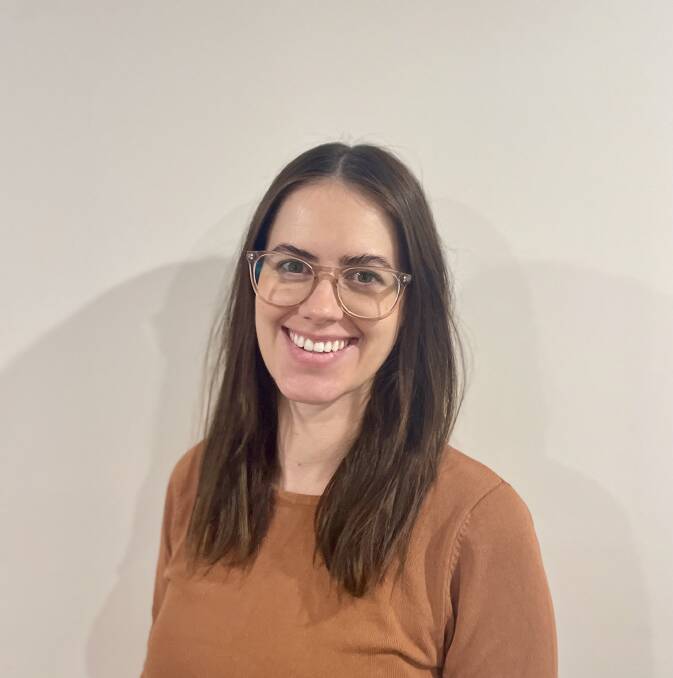When Liam Manning was 17 years old and living with an eating disorder, he had to travel 400 kilometres to Sydney and stay there for five months to get the medical help he needed to set him on a path to recovery.
Subscribe now for unlimited access.
$0/
(min cost $0)
or signup to continue reading
Liam needed specialised eating disorder treatment and this simply wasn't available in Dubbo.
Liam, now 25 years old and living in Newcastle, said the regional health system let him down - and it is likely letting down others who are living with eating disorders in the central west of NSW today.
"If I never got out of Dubbo, I reckon I would have been in a lot of trouble," Liam told ACM's Daily Liberal.
Liam describes having an eating disorder as like living with a heavy weight on your shoulders that never goes away. You can't feel happiness - you feel like a burden to others.
He wants other young people in the regions - especially boys and young men - to know there is help out there.
He also desperately wants to see an overhaul of our health system so these young people don't have to travel five hours away to get help.
"I was suffering from an eating disorder for a really long time without knowing what it was, and I had no concept and I had no understanding or knowledge that males could get eating disorders - it was always something that was associated with women," Liam said.
Liam counts himself as "lucky" that both his parents were health workers so he "had some connection to be able to access support which a lot of people didn't have".

Eventually, he was checked-in as an in-patient at a private hospital in Sydney.
But it had taken doctors in Dubbo seven years to diagnose Liam with an eating disorder - something he thinks he began to show symptoms of when he was only 10 years old.
He thinks the medical practitioners should've identified the signs earlier but, due to a lack of knowledge, training, consistency and availability of service in the central west, he was left high and dry.
"When they saw a young man struggling ... [a diagnosis of] eating disorder didn't really come up," Liam said.
"And there were really poorly-educated individuals who I first encountered ... [during] my first sort of venture into seeking support."
The healthcare professionals who served Liam didn't understand eating disorders and this made Liam "not want to go out and seek help" anymore. He said he felt like he was "being judged".
"I felt like I was, you know, a freak, I had horrible experiences trying to ask for support, I guess, out in those regions and, and that really prohibited sort of my ability to be able to face the issues that I was, that I was suffering from."
When asked if he thought other regional areas were experiencing the same gaps in support, he said "yeah, absolutely" - and he thinks it comes down to funding.
"You're talking about a significant portion of Australia that is chronically-underfunded," he said.
"So you've got really poor access to resources, these departments, you know, the psychiatrists in the town I was at, they were changing monthly ...
" ... [The health department] weren't able to provide the support for these incoming psychiatrists to be able to provide support [to patients]. So you could never develop rapport with anybody ... there was just such a massive churn rate.
"And, from my understanding, it was a lack of funding, lack of support, lack of resources. So [professionals] just moved to the cities, right, where they could be better remunerated for their work or they could establish ties and there's just none of that really in the regional areas."

Liam's GPs kept leaving town and not coming back. He couldn't find a psychiatrist at all. He had "very limited" access to psychologists, and when he finally found one he connected with, they left.
"So, like there was zero support really outside of family," Liam said.
Liam was diagnosed with anorexia nervosa when he was 17, but said the fact it wasn't picked up until seven years after he began displaying symptoms shows the "lack of support and understanding" of the illness.
He is calling for the government to have a good look into the healthcare it provides for people living with eating disorders in the regions.
"Like rather than trying to just pump money into something that's broken or unveiling new plans that have got no feedback from the people on the ground, like just doing a review of people who have left and maybe even the ones who have stayed," he suggested.
IN OTHER NEWS
The only support he was able to access in Dubbo was the local hospital which addressed the immediate physical danger but did not address the psychological issues - which ultimately led to relapse.
He said many people "just slip through the cracks".
He wanted other young people living with an eating disorder to know they're not alone.
"There is a path through. I just wish I had somebody earlier in my journey tell me that ... I'm enough as I am despite what the environment's told me and that there is a way through this."
Reaching out to the regions
Ashlea Hambleton, research officer and PhD candidate at the InsideOut Institute for Eating Disorders, based at Sydney University, said the organisation had been trialling a telehealth service to help young people living with anorexia in regional and rural Australia.
The trial, which delivers family-based treatment (FBT), was developed because the research team identified a gap in treatment options for people living outside our major cities.
"Typically, access to FBT and any sort of eating disorder treatment is quite challenging ... navigating the health system and navigating and trying to find clinicians with experience and training and specialisation in these treatments can be notoriously challenging no matter where you live," Ms Hambleton told ACM's Daily Liberal.

"But what we learned was that for people living in rural and regional areas, that challenge was absolutely amplified by very few specialist services, if any, being available, very high turnover of workforce, under-resourced and over-strained health services, and very, very few private practitioners, if any, are actually available, and those that are available, tend to have very lengthy wait lists."
The trial aims to bridge the gap, bringing video teleconferencing with a trained health professional into the home of families with a child diagnosed with anorexia.
The next phase is to work out implementation and sustainable pathways to deliver the program beyond the research trial.
"One of the things that we're quite passionate about, and I think this research has really highlighted, is the ongoing need for more work in rural and regional areas and working with rural and regional communities ... and with the health services and building relationships with health services and stakeholders across all of the services to really understand the needs," Ms Hambleton said.
If you need help, contact:
- Butterfly Foundation national helpline: 1800 334 673; chat online at www.butterfly.org.au/get-support/chat-online or via email at support@butterfly.org.au
- Lifeline: 13 11 13; lifeline.org.au
- KidsHepline: 1800 551 800; kidshelpline.com.au
- ReachOut: ReachOut.com


